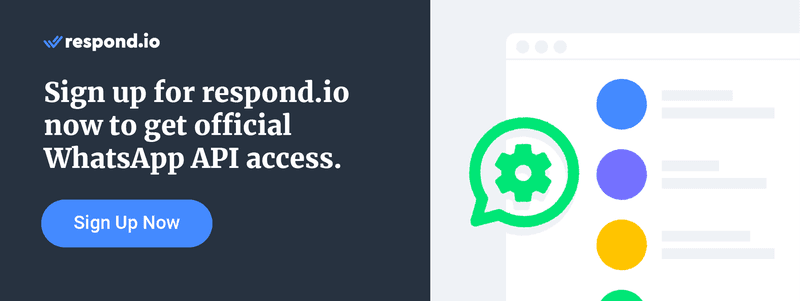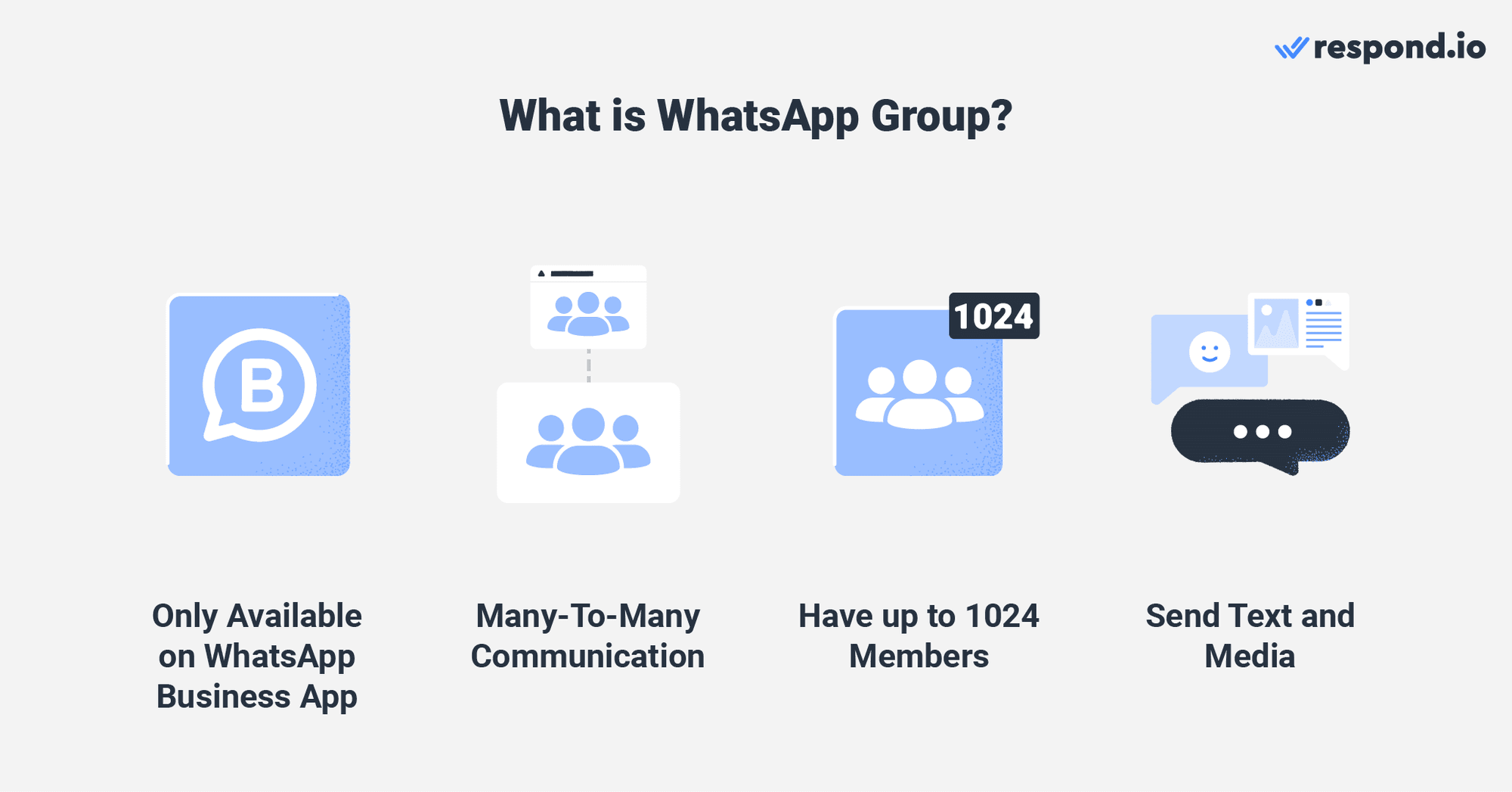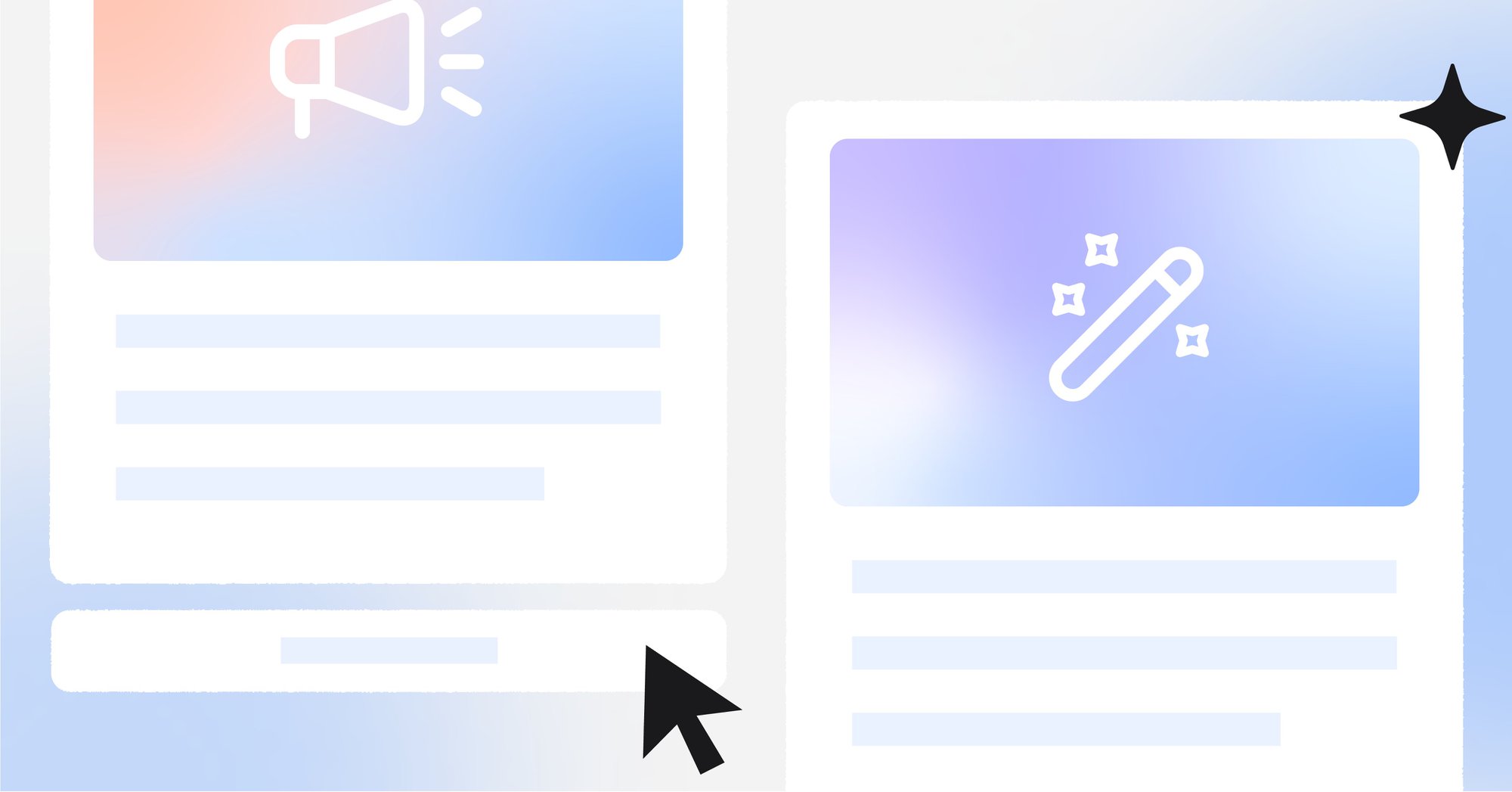WhatsApp Broadcast and WhatsApp Groups are two powerful features that can greatly benefit businesses in their marketing and communication strategies. While both features have many similarities, there are notable differences. In this article, we’ll compare WhatsApp broadcast vs group including their advantages and use cases.

What is WhatsApp Broadcast vs Group?
WhatsApp Broadcast and WhatsApp Group are features within the WhatsApp Business Platform that let users reach out to multiple recipients simultaneously for announcements, promotions or building a customer base. However, both features do this in different ways.
How do they work and what are they used for? Let’s take a look at that next.
What is WhatsApp Broadcast?
WhatsApp Broadcast allows businesses to send a message to multiple recipients. It functions as a one-to-many communication channel, where the sender's message is delivered individually to each recipient. Senders can send both text and media, like photos and videos, to recipients.

You can send notifications and announcements to customers using the WhatsApp Business App and the WhatsApp API. The features are similar across both WhatsApp products, but with a few notable differences.
WhatsApp Broadcast on WhatsApp Business App
If you’re a small business or if you receive and send low volumes of messages, then the WhatsApp Business App is sufficient for your business. On the app, you are limited to 256 contacts per broadcast list.
To add contacts to a broadcast list, businesses must manually add contacts to their address book. Furthermore, contacts will need to have saved your number to receive your broadcasts. This is to prevent spamming, per WhatsApp’s Business Policy.
If you’re an enterprise that needs to broadcast to a larger number of contacts, you should use WhatsApp API instead.
WhatsApp Broadcast on WhatsApp API
Built for businesses to message at scale, WhatsApp API overcomes some of the limitations of the WhatsApp Business App when sending broadcasts. For example, contacts don’t have to save your number to receive your broadcast and you can bulk message a much larger audience.
However, WhatsApp API doesn’t have an interface and you need to connect it to a messaging inbox like respond.io to send and receive messages. You can also only use Message Templates that have been approved by Meta for your broadcasts.
What is WhatsApp Group?
WhatsApp Group is only available on the WhatsApp Business App and is best for small businesses that send and receive low volumes of messages. It is a many-to-many communication channel where up to 1,024 members can be added to a group.
They are great for building and fostering a close community of members that have common interests.

Group members can interact with each other by sending messages, sharing media and engaging in discussions. They can even start and join group calls, making meetings possible.
Now that you’re familiar with groups and broadcasts, how do they compare with each other?
WhatsApp Broadcast vs WhatsApp Group: Which Should You Choose?
Even though you’re aware of the differences between WhatsApp Broadcast and WhatsApp Group, you might not be sure which suits you best. To determine that, reflect on the goals of the interaction.

In this section, let’s take a look at 3 things that will affect your decision.
WhatsApp Broadcast vs Group: Scaling Your Reach
As broadcasts work as a one-to-many form of communication and are used for notifications and updates, businesses typically don’t require or expect contacts to respond.
Businesses that want discussions and to foster a community should use WhatsApp Group. However, doing this means reaching more customers will take longer. This is because businesses need to participate in the groups as well.
WhatsApp Broadcast vs Group: Engaging with Your Audience for Different Use Cases
As the way broadcasts and groups send and receive messages are different, the way you use them will differ as well. Here are 3 use cases for reaching out to your audience using WhatApp Broadcast and WhatsApp Group.
Marketing and promotions: WhatsApp Broadcast shines when it comes to marketing and promotions. It allows businesses to set their targeted audience and broadcast announcements, offers, back-in-stock alerts and more.
With WhatsApp Group, the group itself is your target audience. Unlike broadcasts, the interactive nature of groups allows for highly personalized marketing campaigns. For example, Agent Provocateur had a creative campaign that have yielded a high conversion rate.
For example, real estate agents have multiple WhatsApp Groups for different properties and locations. This makes it easy for them keep track of the various development projects when connecting with investors or buyers.

Building a sales funnel: When it comes to building a sales funnel, both WhatsApp Broadcast and WhatsApp Group can play significant roles. WhatsApp Broadcast is an effective tool for sending targeted messages that drive lead generation and conversion.
By leveraging personalization tools like dynamic variables on respond.io, you can create compelling messages that resonate with your audience and guide them through the sales funnel.
With a WhatsApp Group, businesses can build on their sales funnel by providing resources such as exclusive content that acts as a lead magnet. By continuing to engage with the audience, businesses can further nurture those leads until a sale is made.
Building rapport: Both features play a role in building rapport with your audience, albeit in different ways. WhatsApp Broadcast can help update your customers on service disruptions, account updates and more.
Regular communication through broadcasts, like WhatsApp newsletters, can establish a sense of reliability and trust with your audience.
WhatsApp Groups, on the other hand, provide a more interactive space for building rapport. By creating customer support groups, businesses can gather feedback from discussions with their customers.
This level of interaction fosters a deeper connection and builds rapport, as customers feel valued and supported.
WhatsApp Broadcast vs Group: Moderating Messages
Keep in mind that you will need to actively moderate your group to avoid spam and non-relevant content. If you don’t, then you run the risk of your group members ignoring messages, muting the group or even leaving it.
With WhatsApp Broadcast, there’s no need to manage your audience since there's no communication among your contacts. All replies to your broadcasts are sent directly to you.
Furthermore, with a customer conversation management software like respond.io, you can create chat automation to route responses to the right team or handle spam automatically.
Software like respond.io also provides insights into the performance of your broadcasts. This includes information like successfully sent, failed and read messages to optimize future broadcasts.
Making the Choice
So, now that you’re aware of the differences between WhatsApp Broadcasts and WhatsApp Groups, which should you choose?
If you’re a small business using the WhatsApp Business App and need direct communication, community and customer support for a relatively small audience, then a WhatsApp Group fits you best.
But if you’re a medium or a large business and want to communicate on a much larger scale, you need WhatsApp API and broadcasts.
Working with a WhatsApp Business Solution Provider and messaging software like respond.io also allows you to handle a high volume of communication with advanced messaging features and chat automation, as well as monitor multiple agents or teams.
By carefully assessing your objectives and considering the unique benefits of each feature, you can strategically leverage either WhatsApp Broadcast or WhatsApp Groups to enhance your business' marketing efforts and establish stronger connections with your audience.

Further Reading
Did you find this article useful? We suggest you read these articles to learn more about WhatsApp.
- WhatsApp Broadcast: How to Broadcast WhatsApp Messages
- What Is A WhatsApp Group?
- WhatsApp Communities: A Guide to Creating Communities on WhatsApp



























